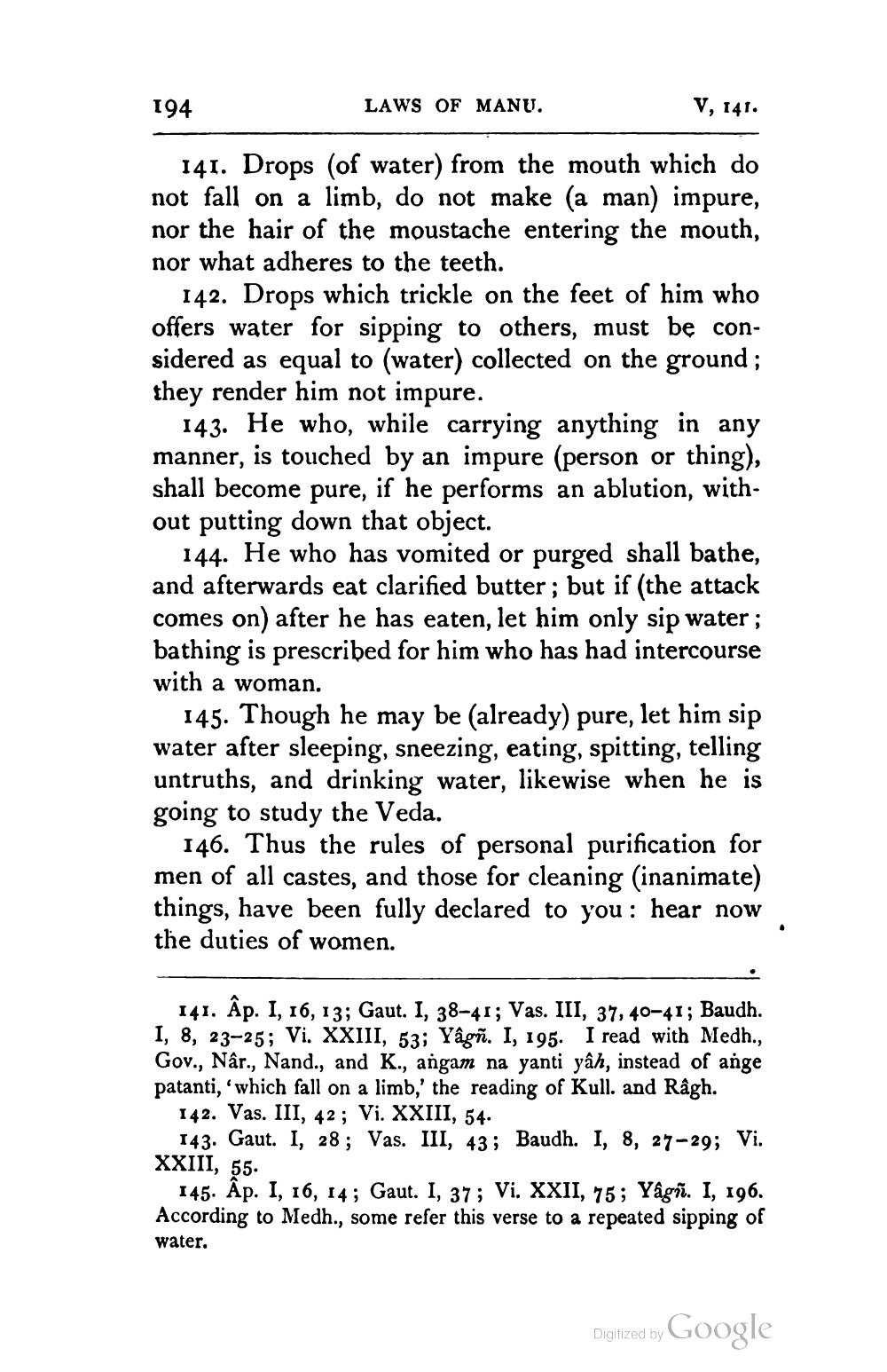________________
194
LAWS OF MANU.
V, 141.
141. Drops (of water) from the mouth which do not fall on a limb, do not make (a man) impure, nor the hair of the moustache entering the mouth, nor what adheres to the teeth.
142. Drops which trickle on the feet of him who offers water for sipping to others, must be considered as equal to (water) collected on the ground; they render him not impure.
143. He who, while carrying anything in any manner, is touched by an impure (person or thing), shall become pure, if he performs an ablution, without putting down that object.
144. He who has vomited or purged shall bathe, and afterwards eat clarified butter; but if (the attack comes on) after he has eaten, let him only sip water; bathing is prescribed for him who has had intercourse with a woman.
145. Though he may be (already) pure, let him sip water after sleeping, sneezing, eating, spitting, telling untruths, and drinking water, likewise when he is going to study the Veda.
146. Thus the rules of personal purification for men of all castes, and those for cleaning (inanimate) things, have been fully declared to you: hear now the duties of women.
141. Ap. I, 16, 13; Gaut. I, 38-41; Vas. III, 37, 40-41; Baudh. I, 8, 23–25; Vi. XXIII, 53; Yâgñ. I, 195. I read with Medh., Gov., Nár., Nand., and K., angam na yanti yâh, instead of ange patanti, which fall on a limb,' the reading of Kull. and Râgh.
142. Vas. III, 42; Vi. XXIII, 54.
143. Gaut. I, 28; Vas. III, 43 ; Baudh. I, 8, 27-29; Vi. XXIII, 55.
145. Ap. I, 16, 14; Gaut. I, 37; Vi. XXII, 75; Yâgñ. I, 196. According to Medh., some refer this verse to a repeated sipping of water.
Digitized by Google




